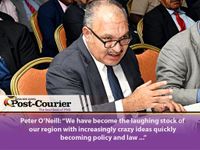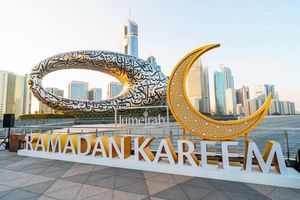In a controversial move that has sparked widespread outrage, the government of Papua New Guinea (PNG) has shut down access to Facebook as part of a "test" aimed at curbing hate speech, misinformation, pornography, and other harmful content. This unprecedented action began on the morning of March 24, 2025, and continued into the following day, leaving the country’s estimated 1.3 million Facebook users unable to log in to the platform.
The shutdown was conducted under the country’s anti-terrorism laws, a decision that has drawn sharp criticism from opposition MPs and media leaders who label it as a form of tyranny and an abuse of human rights. PNG's Police Minister Peter Tsiamalili justified the ban, stating that the initiative was intended to ensure the responsible use of social media platforms while keeping harmful content out of public discourse. He remarked, "The unchecked proliferation of fake news, hate speech, pornography, child exploitation, and incitement to violence on platforms such as Facebook is unacceptable. These challenges increasingly threaten the safety, dignity, and well-being of our populace."
Facebook, which is the most popular social media platform in PNG, serves as a vital tool for public discourse, with many users relying on it to discuss political and social issues. However, the government has long criticized the platform, blaming it for the spread of misinformation, particularly in light of a recent surge in tribal killings. In 2023, the PNG government announced a parliamentary inquiry into media disinformation, indicating a growing concern over the influence of social media.
The abrupt nature of the shutdown has raised eyebrows, particularly because it was not announced in advance. Media Council of PNG president Neville Choi expressed his alarm, stating that the move "borders on politically autocracy and an abuse of human rights." Opposition MP Allan Bird described the action as draconian, warning that the police minister now possesses unchecked powers under the new law, which could lead to further erosions of civil liberties. Bird stated, "Yesterday, the police minister used the anti-terrorism act to shut down Facebook; that was just a test, that was step one. There is no limit to the powers the Minister of Police can exercise under this new law. It is draconian law designed to take away our freedoms. We are now heading into dangerous territory and everyone is powerless to stop this tyranny."
The business community has also reacted with shock, particularly those in the informal sector who rely on Facebook for trade. John Pora, chairman of PNG’s Small and Medium Enterprise Corporation, noted that many informal sellers would be adversely affected by the ban. "We have a couple of hundred thousand people in the informal sector and they’ll be feeling uncertain, so I’m hoping the systems come back online soon to allow them to trade," he said.
Adding to the controversy, former Prime Minister Peter O’Neill questioned the timing of the shutdown, which coincided with Prime Minister James Marape’s court appearance as a state witness in a case involving former deputy secretary of the Finance Department, Jacob Yafai. Yafai is facing allegations of authorizing millions of kinas in legal fees to Paul Paraka Lawyers, whose principal was sentenced to 20 years in prison last year for receiving the money. O’Neill suggested that the Facebook shutdown was a deliberate attempt to stifle social media scrutiny of the court case, alleging that Tsiamalili was acting on Marape’s instructions.
O’Neill expressed concern over the implications of the government’s actions, stating, "Will this not just make our people even more frustrated, unhappier and suspicious of the Marape government who seems to be introducing legislation fundamentally changing not just our Constitution but our national way of life?" He criticized the government's focus on regulating social media instead of addressing pressing economic issues, saying, "Government should have laser focus on fixing the economic mess and settling the law-and-order issues."
The reaction to the Facebook ban has been swift and intense, with many citizens expressing their frustrations online and through other media. The government’s decision has reignited debates about freedom of speech and the role of social media in society. East Sepik Governor Allan Bird emphasized that the anti-terrorism law, which facilitated the shutdown, is too broad and could potentially target innocent individuals. He remarked, "The definition of a terrorist is left to the Police Minister to decide," highlighting the dangers of such unchecked authority.
As the situation continues to unfold, the future of social media regulation in Papua New Guinea remains uncertain. The National Information and Communications Technology Authority disclosed that it was unaware of the government’s plans to shut down Facebook, despite Tsiamalili’s claims that the department supported the initiative. This lack of communication further complicates an already contentious issue.
PNG is not the first country in the Pacific to consider banning Facebook. In 2021, the Solomon Islands introduced plans to ban the platform but ultimately reversed the decision following public backlash. The current developments in PNG, however, mark a significant escalation in the government’s approach to social media regulation.
As citizens and leaders alike grapple with the implications of this shutdown, questions surrounding the balance between regulating harmful content and preserving civil liberties are likely to remain at the forefront of public discourse. The government’s actions have raised alarms about the potential for overreach and the erosion of democratic freedoms in PNG.





